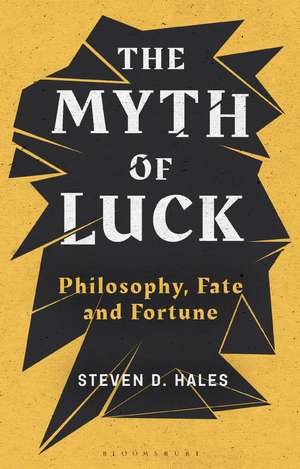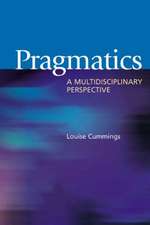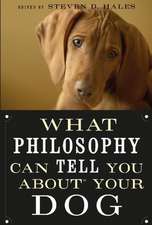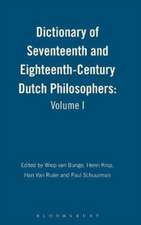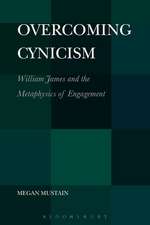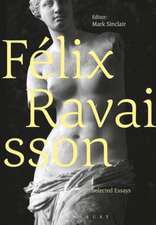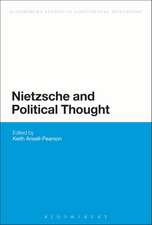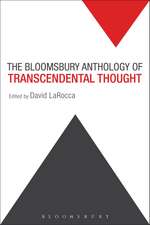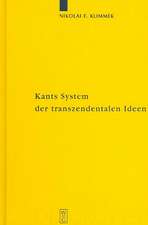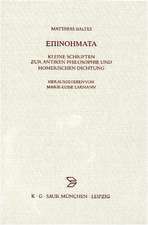The Myth of Luck: Philosophy, Fate, and Fortune
Autor Steven D. Halesen Limba Engleză Paperback – 19 aug 2020
| Toate formatele și edițiile | Preț | Express |
|---|---|---|
| Paperback (1) | 146.78 lei 3-5 săpt. | +26.44 lei 6-12 zile |
| Bloomsbury Publishing – 19 aug 2020 | 146.78 lei 3-5 săpt. | +26.44 lei 6-12 zile |
| Hardback (1) | 435.97 lei 6-8 săpt. | |
| Bloomsbury Publishing – 19 aug 2020 | 435.97 lei 6-8 săpt. |
Preț: 146.78 lei
Preț vechi: 159.22 lei
-8% Nou
Puncte Express: 220
Preț estimativ în valută:
28.09€ • 29.32$ • 23.24£
28.09€ • 29.32$ • 23.24£
Carte disponibilă
Livrare economică 14-28 martie
Livrare express 27 februarie-05 martie pentru 36.43 lei
Preluare comenzi: 021 569.72.76
Specificații
ISBN-13: 9781350149298
ISBN-10: 1350149292
Pagini: 240
Dimensiuni: 138 x 216 x 21 mm
Greutate: 0.34 kg
Editura: Bloomsbury Publishing
Colecția Bloomsbury Academic
Locul publicării:London, United Kingdom
ISBN-10: 1350149292
Pagini: 240
Dimensiuni: 138 x 216 x 21 mm
Greutate: 0.34 kg
Editura: Bloomsbury Publishing
Colecția Bloomsbury Academic
Locul publicării:London, United Kingdom
Caracteristici
Packed with examples and stories of those who have shaped our understanding of luck, drawing from culture, history, philosophy, mathematics and literature, taking in the Stoics, Julius Caesar, Galileo, Camus and Pascal
Notă biografică
Steven D. Hales, Ph.D. (Brown) is Professor and Chair of Philosophy at Bloomsburg University of Pennsylvania, USA. He works primarily in metaphysics and epistemology, and also in popular philosophy. He has been a Visiting Professor at the Universities of Cambridge, Turin, Edinburgh, and London. He is an award-winning writer and teacher, and has published numerous books and articles. Find him at stevenhales.org.
Cuprins
Acknowledgements1. Lachesis's Lottery and the History of Luck The Myth of Er Tuche and Fortuna Submission to luck: lucky charms Rebellion against luck: Stoicism Denial of luck: all is fated Luck and gambling 2.Luck and Skill Slaying Laplace's Demon A probability theory of luck Winners and losers Buying hope on credit A skill equation? Problems with probability 3. Fragility and Control Invisible cities of the possible The garden of (logically) forking paths A modal theory of luck Transworld 2000 Lucky necessities A control theory of luck Séances and rubber hands Wimbledon 2012 Synchronic and diachronic luck 4. Moral Luck The Kantian puzzle The Egg of Columbus The accidental Nazi and the museum of medical oddities Equalizing fortune Privilege Essential origins 5. Knowledge and Serendipity Finding Meno Discover « forget The man who sold the Eiffel Tower and other skeptical threats The Overton Window Serendipity Divide and conquer 6. The Irrational Biases of Luck The frame shop Dueling vignettes Optimism vs. pessimism Sailing stones and flying witches Machine gambling Against luck Go luck yourselfNotes BibliographyIndex
Recenzii
A fascinating discourse on the nature and significance of luck that draws on a diverse range of sources; a delightful and enlightening journey.
In this book, Steven Hales challenges what we often take to be uncontentious assumptions about luck and its significance in our lives, both morally and epistemically. The result is a novel and provocative account of luck, one that will be an important reference point for future work in the area.
A lively, richly illustrated romp through a deep human topic, all in hopes of freeing us from Lady Fortuna's grip. We confuse luck for chance and fortune, Hales suggests, and we re-gain our sense of agency by knowing which is which.
In this book, Steven Hales challenges what we often take to be uncontentious assumptions about luck and its significance in our lives, both morally and epistemically. The result is a novel and provocative account of luck, one that will be an important reference point for future work in the area.
A lively, richly illustrated romp through a deep human topic, all in hopes of freeing us from Lady Fortuna's grip. We confuse luck for chance and fortune, Hales suggests, and we re-gain our sense of agency by knowing which is which.
